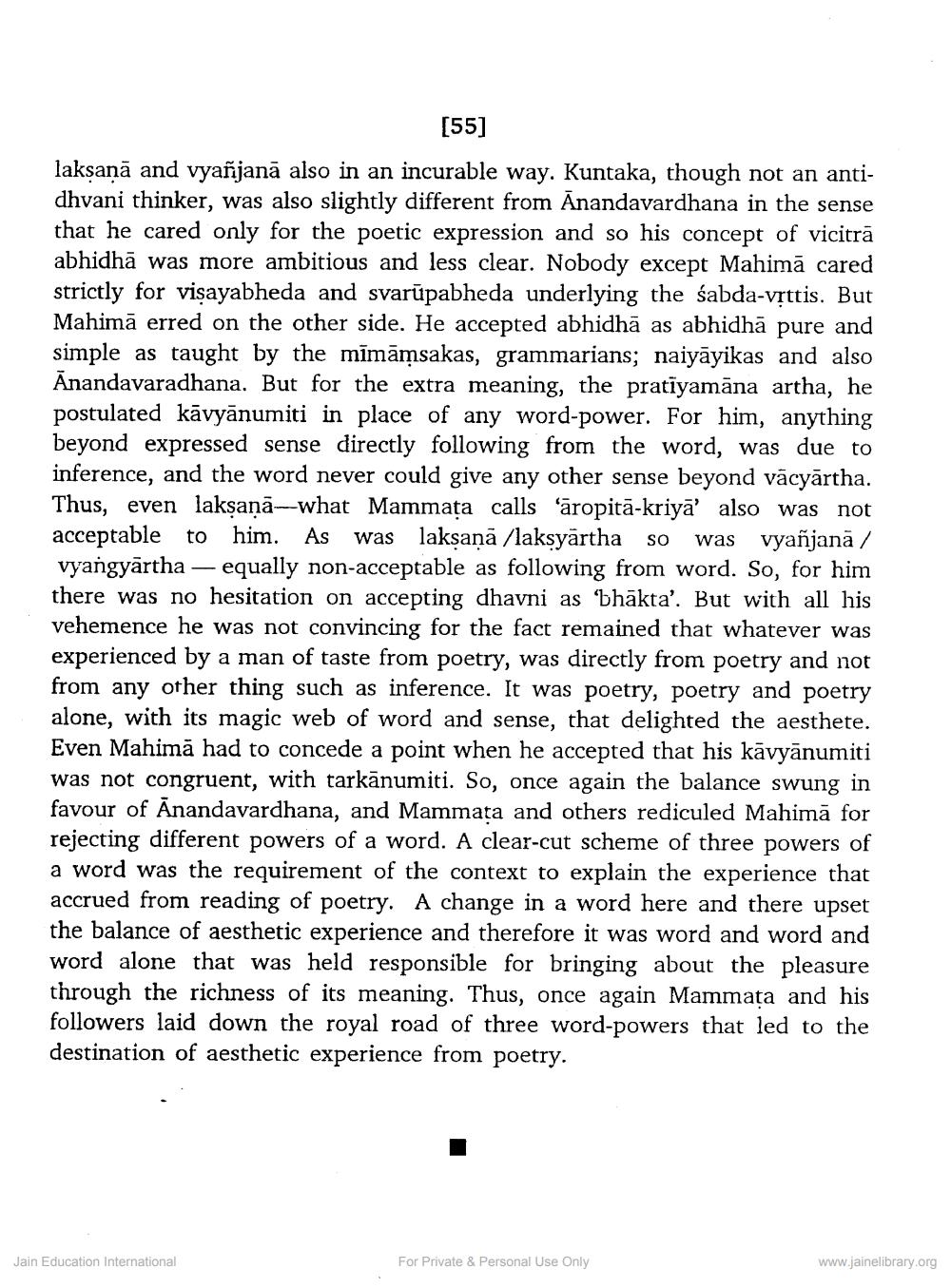________________
[55]
laksanā and vyañjanā also in an incurable way. Kuntaka, though not an antidhvani thinker, was also slightly different from Anandavardhana in the sense that he cared only for the poetic expression and so his concept of vicitrā abhidhā was more ambitious and less clear. Nobody except Mahimā cared strictly for visayabheda and svarūpabheda underlying the sabda-vrttis. But Mahimā erred on the other side. He accepted abhidhā as abhidhā pure and simple as taught by the mīmāņsakas, grammarians; naiyāyikas and also Anandavaradhana. But for the extra meaning, the pratīyamāna artha, he postulated kāvyānumiti in place of any word-power. For him, anything beyond expressed sense directly following from the word, was due to inference, and the word never could give any other sense beyond vācyārtha. Thus, even laksaņā--what Mammata calls "āropitā-kriya' also was not acceptable to him. As was laksaņā /laksyārtha so was vyañjanā / vyangyārtha – equally non-acceptable as following from word. So, for him there was no hesitation on accepting dhavni as 'bhākta'. But with all his vehemence he was not convincing for the fact remained that whatever was experienced by a man of taste from poetry, was directly from poetry and not from any other thing such as inference. It was poetry, poetry and poetry alone, with its magic web of word and sense, that delighted the aesthete. Even Mahimā had to concede a point when he accepted that his kāvyānumiti was not congruent, with tarkānumiti. So, once again the balance swung in favour of Anandavardhana, and Mammata and others rediculed Mahimā for rejecting different powers of a word. A clear-cut scheme of three powers of a word was the requirement of the context to explain the experience that accrued from reading of poetry. A change in a word here and there upset the balance of aesthetic experience and therefore it was word and word and word alone that was held responsible for bringing about the pleasure through the richness of its meaning. Thus, once again Mammata an followers laid down the royal road of three word-powers that led to the destination of aesthetic experience from poetry.
Jain Education International
For Private & Personal Use Only
www.jainelibrary.org




